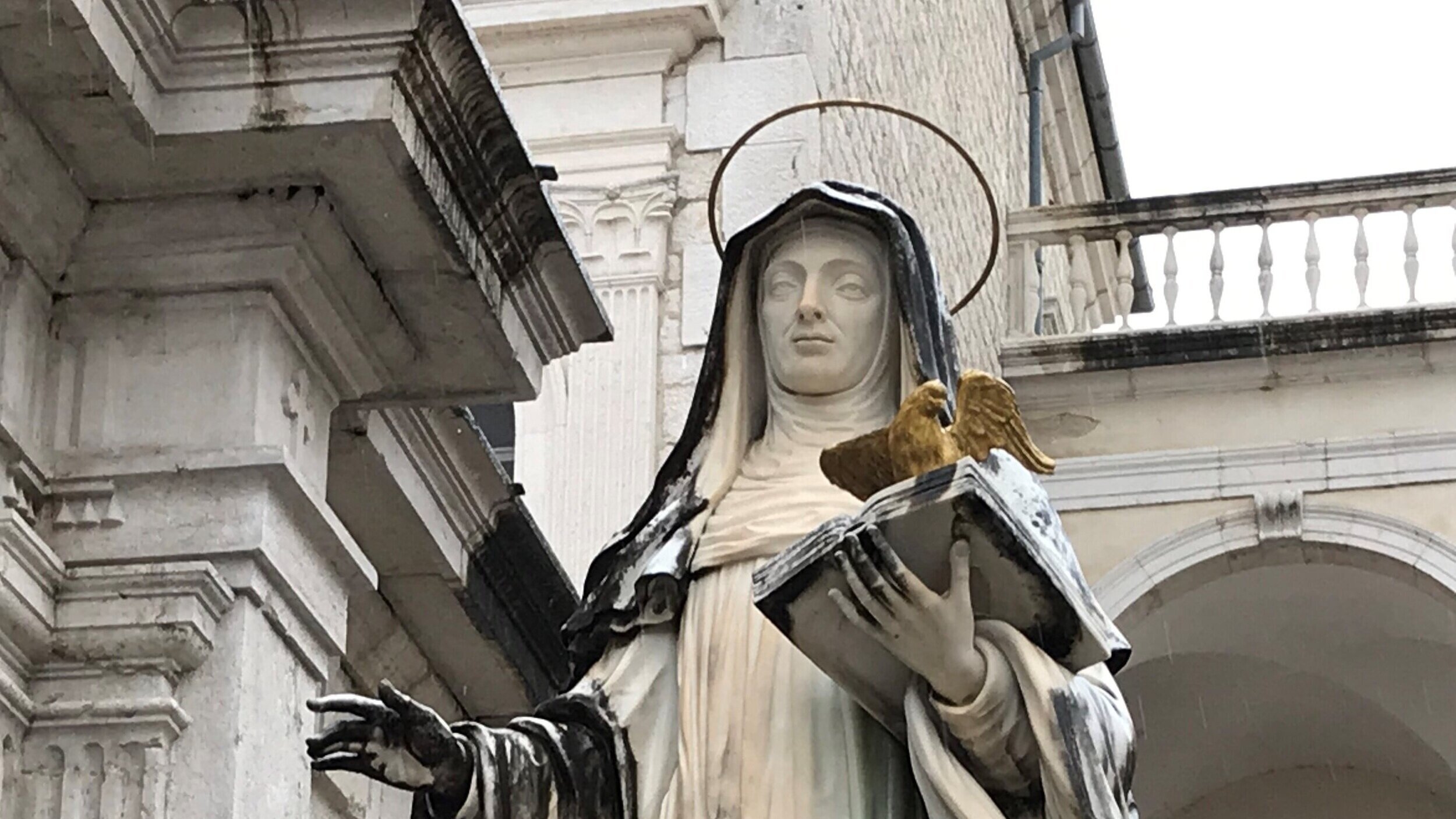The Feast of St. Scholastica
Reflection from February 10, 2022 | Sr. Susan Hutchens, Prioress
The Church honors many founders and foundresses of Religious Communities. We are unique in that our founder and foundress go back over 1500 years! It gives one a cause for a pause.
In Psalm 81 which we pray at our Vigil, the word “listen” – the first word of our Rule - appears 3 times. How appropriate for this Saint’s feast! The hymns from the Vigil and Lauds on the feast use the phrases: “O Lord of my heart”; “With a heart that thirsted for the Sacred Word”; and “Love, Divine, your heart enshrining.”
My reflection stems from these 2 ideas: Listening with the heart and expressing one’s heart in word and feeling.
Benedict’s community had practices, that his community followed. One of those impacted the annual meeting of the siblings Benedict and Scholastica when they met once a year to catch up on things. He reminded her that it was not right for him to remain outside the monastery at night. Scholastica listened well to all of the directions of the Rule, but first she listened to her heart and to the Lord of her heart.
She knew that people were more important than practices sometimes – that love supersedes all, no matter what. So, when that practice interfered with her need to be with Benedict for a longer time, she turned to God. God answered as we know with a storm that prevented Benedict from leaving. Her heart told her God’s answer was: YES - love wins out!
She sought the very life that Benedict had founded – not a watered-down or easy life, but the same life: seeking God within her community, struggling with faith in the way all adults do, desiring to be the daughter of God who had called her to lead others to God.
Like Benedict, Scholastica longed for a place in the world that was also in the heart of God. Her heart thirsted for the Sacred Word as our song on the Feast will say. She sought to enshrine God’s love in her own heart. She called Christ, the Lord of her heart, as we sing in a hymn at the Vigil.
Scholastica was a vital member of the Church of the 5th century – yet a woman who lived apart in her monastery, as did Benedict in his. But they were never separated from the Church. We too live apart but are one with God’s Church – as members of it. Through the Church, we are connected to so many people: though families, friends, Oblates, parishes, schools where we serve or did serve; and through our Benet House Retreat ministry, to name a few.
I thought about what St. Scholastica might say today if she were alive for the upcoming Synod of Bishops. What would she support within the Church? What would she suggest be changed? How might she see new life within the Church?
Today we are being asked to look at our Church, and name what is best, as well as naming what needs to be changed or addressed in the future. I liken what we are being called to do with what only the Bishops were called to do at Vatican II. This is a stellar moment, a Kairos moment, a moment that will define change, in our church. Not just a moment of opportunity for us, but a moment of grace. Let us not let it slip by.
I like to think that is something Scholastica would not have done. She would not let it slip by. After all, she found a way to keep Benedict with her that night of the storm, even though his staying might have been “against the practice of his time.” Her life’s guiding star was love, and it won out over everything else.
We know that there are many areas of our lives, particularly within the Church that are governed by laws or practices that are not fully open to God’s love which accepts ALL people as loving creations of God: rules about divorce, remarriage, and reception of Eucharist; rules about who might teach in our schools based on their accepted gender identity; rules about the validity of same-sex unions and adoption of children by same-sex couples. Rules that deny full ministry in the Church to women and men alike. These rules came out of our history as Church. Today we have an opportunity to listen to what today’s Church needs and how rules of the past might change based on God’s love.
What would Scholastica have done in the face of a Synod?
She probably would have prayed, listened long, and then done what she knew the God of love would do – open the door to all that is new, and give God praise!
Let us follow in her footsteps: listening and loving enough as she did.

